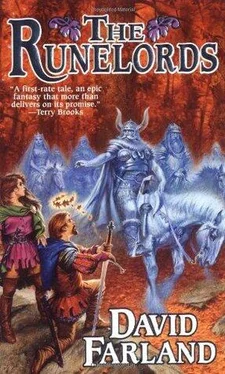David Farland - The Sum of All Men
Здесь есть возможность читать онлайн «David Farland - The Sum of All Men» весь текст электронной книги совершенно бесплатно (целиком полную версию без сокращений). В некоторых случаях можно слушать аудио, скачать через торрент в формате fb2 и присутствует краткое содержание. Жанр: Фэнтези, на английском языке. Описание произведения, (предисловие) а так же отзывы посетителей доступны на портале библиотеки ЛибКат.
- Название:The Sum of All Men
- Автор:
- Жанр:
- Год:неизвестен
- ISBN:нет данных
- Рейтинг книги:3 / 5. Голосов: 1
-
Избранное:Добавить в избранное
- Отзывы:
-
Ваша оценка:
- 60
- 1
- 2
- 3
- 4
- 5
The Sum of All Men: краткое содержание, описание и аннотация
Предлагаем к чтению аннотацию, описание, краткое содержание или предисловие (зависит от того, что написал сам автор книги «The Sum of All Men»). Если вы не нашли необходимую информацию о книге — напишите в комментариях, мы постараемся отыскать её.
The Sum of All Men — читать онлайн бесплатно полную книгу (весь текст) целиком
Ниже представлен текст книги, разбитый по страницам. Система сохранения места последней прочитанной страницы, позволяет с удобством читать онлайн бесплатно книгу «The Sum of All Men», без необходимости каждый раз заново искать на чём Вы остановились. Поставьте закладку, и сможете в любой момент перейти на страницу, на которой закончили чтение.
Интервал:
Закладка:
Instead, it had been secluded within the high and narrow walls of the most inner keep, where only the Dedicates might see.
Iome pulled back the black burlap covering.
Her mother's face was not what she'd imagined. Apart from the terrible wound, it was like gazing into the face of a stranger. Her mother had once had several endowments of glamour, had seemed a great beauty. But at death the beauty had gone out of her. Unexpected threads of gray hair were woven into her black tresses. The shadows under her eyes looked dark and sunken. The lines on her soft face had grown hard and old.
The woman on the pallet had been cleaned, but nothing could hide the gash on the left side of her face where Raj Ahten's signet ring had torn her skin, the indentation in her skull where her head had met the paving stones.
The woman beneath the shroud seemed a stranger.
No, Raj Ahten had no need to fear the vassals. They would not rise up in outrage at the death of this old thing.
Iome went to the portcullis, to the captain of the guard, a dark little mustached man in big armor, a helm embossed with silver. It seemed strange for Ault to be gone, or Derrow, when they had stood under this stone alcove for so many years.
“Sir, I'd like permission to take the dead to the King's tombs,” Iome said, holding her breath.
“De castle is onder attack,” the captain said gruffly, his Taifan accent thick. “Is no safe.”
Iome fought the urge to slink away. She did not want to antagonize the captain, yet she felt that it was her sacred duty to bury her mother, show the woman that one last act of dignity. “The castle isn't under attack,” Iome tried to sound reasonable, “only a few nomen trapped in the woods are under attack.” She waved her hand out over the burned battlefield before the castle. “And if Orden should attack, you would see him coming from half a mile, and he would have to breach the Outer Wall. No one is likely to reach the Dedicates' Keep.”
The little man listened intently, his head cocked to the side. Iome could not tell whether he understood her. Perhaps she'd spoken too fast. She could have spoken to him in Chaltic, but she doubted he'd understand.
“No,” the little man said.
“Then let her spirit take vengeance upon you, for I am guiltless. I do not wish to be haunted by a Runelord.”
The little man's eyes flashed in fear. The spirits of dead Runelords were said to cause more trouble than most—particularly if they suffered violent deaths. Though Iome did not fear her mother's shade, this little Taifan captain was from a land where such things were taken far more seriously.
“Hurry,” the little captain answered. “Now. Go. But take nothing more than half an hour.”
“Thank you,” Iome said, reaching out to touch him in gratitude. The captain shrank back from her touch.
Iome called out to Chemoise, to her Days. “Quickly, we need bearers to carry these litters—and some charnel robes.”
Chemoise ran into the kitchens, brought out some of the deaf and mute bakers, the butcher and his apprentice, kitchen helpers with no sense of smell. In a few moments, two dozen people came to help bear the litters.
The butcher trundled over to the Dedicates' Hall, came out with an armload of black cotton charnel robes, with their deep hoods and long sleeves.
Each pallbearer donned a charnel robe, so that the ghosts in the tombs would know they had not come as grave robbers, and at the hem of each robe was a silver bell whose tinkling would drive off any malicious spirits.
When they had finished, they went to the litters and began carrying the dead to the portcullis. Iome took the front right handle of her mother's litter, as was her place.
When they were ready, the Taifan captain and his sergeant put their backs to work, raising the portcullis quickly, and shooed them all from the keep with a warning. “Be back, twenty minutes. No more!”
It would not be enough time, Iome knew, to set the bodies in place, sing the soothing funerary lullabies to the dead, yet she nodded yes, just to put the captain's mind at ease.
Then she began lugging the bodies to the back of the Dedicates' Keep, to a wooded hollow, the King's tombs.
Iome had never done such heavy labor, so she had not gone two hundred feet past the gate, round the corner of Feet Street, when she found herself, heart pounding, moist with sweat, begging the others to stop.
It was nearly noon. As she waited in the bright sunlight, the smell of ash cloying the air, a dirty young hunchback in a deep-hooded robe darted out from the shadows beneath a market's awning.
Immediately she knew it was Binnesman. She could feel the earth power emanating from him, and she wondered what had brought him back, wondered why the wizard sought her.
The hunchback sidled up to Iome, forcing her back a step. “Let ol' Aleson give you a hand with that, lass,” he whispered, pulling back his hood a bit, and he reached for the right front pole to the litter.
It wasn't Binnesman at all. Iome felt astonished to recognize Gaborn's face beneath a liberal coat of grime. Her heart pounded. Something was afoot. For some reason, Gaborn had not made it outside the castle gates and needed her help. And, somehow, Gaborn had grown in the past few hours; had grown in the Earth Powers.
Iome pulled her hood closer to hide her face. For a moment, she felt once again as if all her pride and courage would leach from her. The spell woven into Raj Ahten's forcibles still sought to drain her self-esteem.
Over and over again, she whispered in her mind a litany: This, I deny you. This I deny you.
Yet she could not bear the thought that Gaborn might recognize her. She let him take the litter; then Iome walked beside him as the pallbearers cut through an alley, down the narrow streets that led to the tombs.
The tombs of House Sylvarresta consisted of hundreds of small stone mausoleums, all painted white as bone, rising among a sheltered grove of cherry trees. Many of the mausoleums were designed to look like miniature palaces, with absurdly tall pinnacles, and statues of the dead kings and queens standing at the gates of each tiny palace. Others of the mausoleums, those reserved for trusted retainers and guards, were simply stone buildings.
When they reached the shelter of the grove, Gaborn and the others set down their burdens. Gaborn whispered to Iome, “I am Gaborn Val Orden, Prince of Mystarria. I'm sorry to impose upon you, but I've been hiding all night, and I need information. Can you tell me how House Sylvarresta fares?”
With a start, Iome realized that Gaborn didn't recognize her—not with her beauty gone, her skin rough as bark. Behind her, Iome's Days had her face and historian's robes covered beneath the charnel robes, just another anonymous pallbearer.
Iome did not want Gaborn to know who she was. She could not stand the thought of being ugly in his sight. Yet another fear also struck her heart, for she saw a more compelling reason to keep her identity hidden: Gaborn might feel the need to kill her. She was, after all, a Dedicate to an enemy king.
Iome spoke with a low, frightened, voice; hoping to disguise it. “Do you not even know whose corpse you carry? The Queen is dead. But the King lives. He has given his wit to Raj Ahten.”
Gaborn grasped Iome's arm. “What of the Princess?”
“She is well. She was given a choice—to die, or to live and serve her people as regent. She was forced to give an endowment, also.”
Gaborn asked, “What has she given?” He held his breath, his face full of horror.
Iome considered speaking the truth, revealing her identity, but she could not. “She has given her sight.”
Gaborn fell silent. Abruptly he lifted the litter, signaling an end to the break, and began walking between the tombs again, thoughtful. Iome led Gaborn and the pallbearers to her parents' tomb, which was of classic design. Nine marble spires rose from the tiny palace atop it; outside its door stood statues of King Sylvarresta and his wife, images carved in white marble shortly after their wedding eighteen years before. Iome signaled for the bearers to also bring Cleas into the tomb. As a faithful guard, it was only right that she be interred beside her queen.
Читать дальшеИнтервал:
Закладка:
Похожие книги на «The Sum of All Men»
Представляем Вашему вниманию похожие книги на «The Sum of All Men» списком для выбора. Мы отобрали схожую по названию и смыслу литературу в надежде предоставить читателям больше вариантов отыскать новые, интересные, ещё непрочитанные произведения.
Обсуждение, отзывы о книге «The Sum of All Men» и просто собственные мнения читателей. Оставьте ваши комментарии, напишите, что Вы думаете о произведении, его смысле или главных героях. Укажите что конкретно понравилось, а что нет, и почему Вы так считаете.












